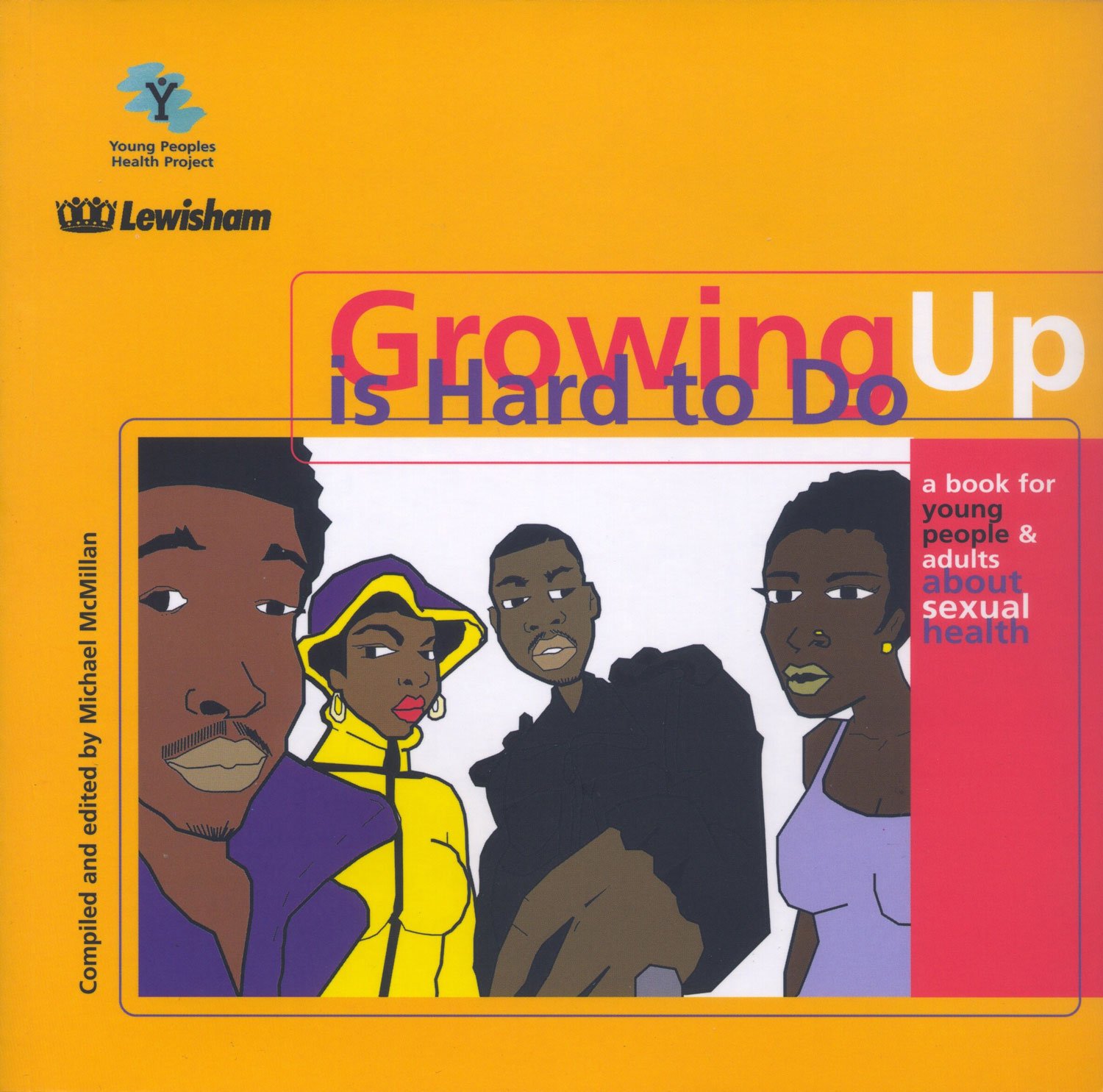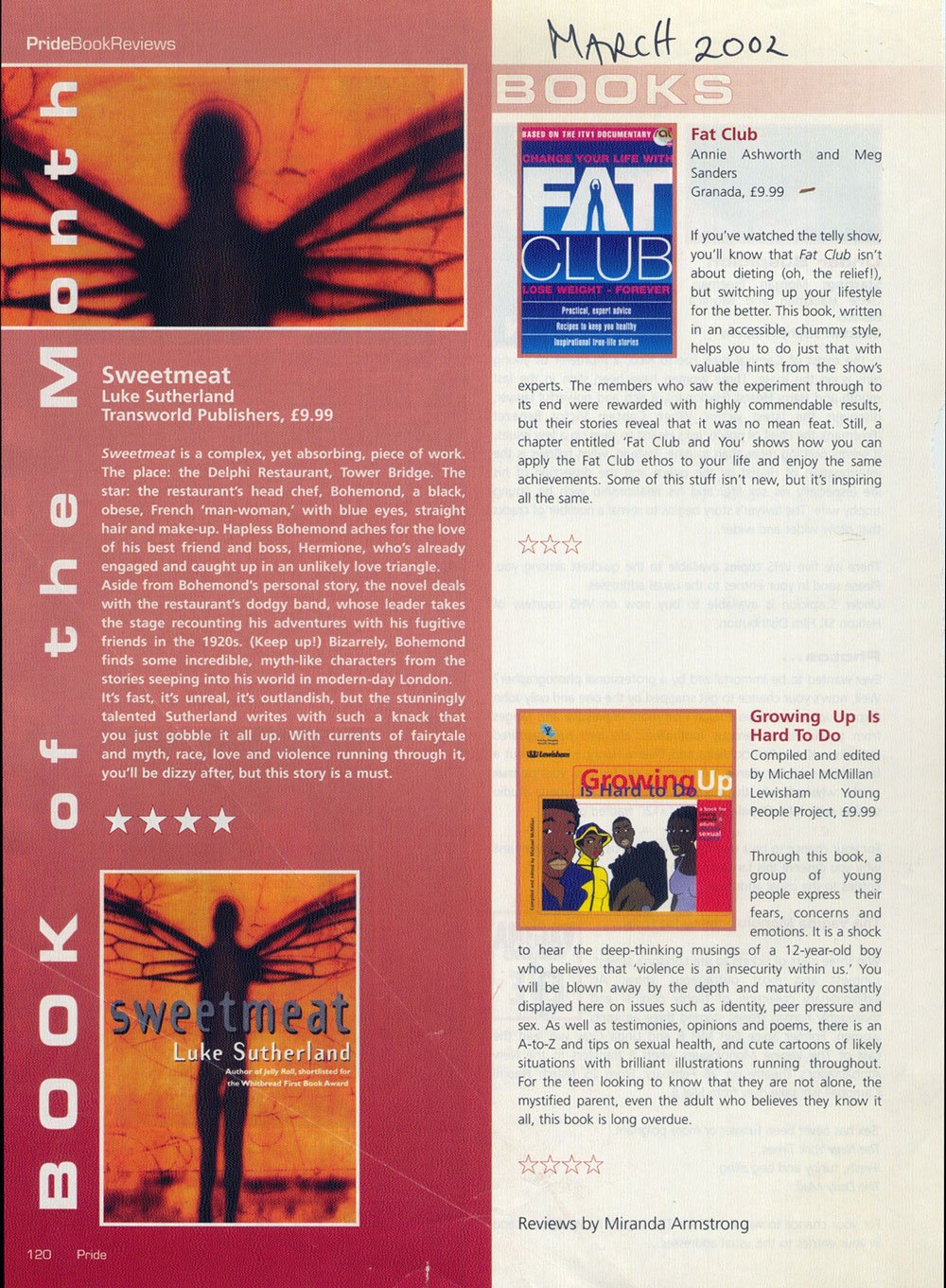Growing Up is Hard to Do: A book for young people & adults about sexual health
This book emerged from a series of workshops with young people at Platform One, South London from 1998-99, and was coordinated by the Young People’s Health Project led by Michael Hamilton. Young people’s experience of sexual health is relatively similar despite cultural, class, educational, racial and gender based differences, yet many sexual promotion campaigns and sex education programmes are not inclusive. A lack of knowledge about sexual health, such as knowledge of one’s body, safe sex practices, sexuality and understanding trust, responsibility and love in relationships is often perpetuated by myths from a cultural perspective. In the absence of safe forums and spaces amongst culturally diverse communities, families and peer groups to discuss sexual health informatively, many of these myths continue to circulate.
Sessions included debates, exercises and creative writing where these themes and questions were explored, such as: How does Black popular culture affect how young Black people define themselves? How are racist stereotypes about Black male and female sexuality internalised by young Black people and played out in relationships? How is their sexuality affected by the emotional context? What are the most effective and relevant contexts for agency and knowledge about sexual health?
This was partially addressed by presenting a Black male and female nude body in a non-pornographic context, where Ajamu and Jumoke as models return the gaze to the viewer in Dave Lewis’s black & white photographs. Young Black ‘baby mothers and fathers’ are also affected by the same ‘social exclusion’ affecting the Black communities in education, employment, housing and health. Young Black people come from families with cultural traditions, practices and beliefs passed down over generations. The book therefore includes transcribed interviews with parents and grandparents talking about their experience of sex and sexuality growing up in the Caribbean and England. As well as poetry, prose, oral testimonies, there is an A to Z of sexual health, several interactive exercises that young people and families in the Black communities can explore together.
In a consumer society where youth culture has become a commodity, it was clear from the process creating this publication that the desire to love and be loved in relationships based on mutual respect, trust and responsibility remain important for young people as they always have been.
Reviews:



